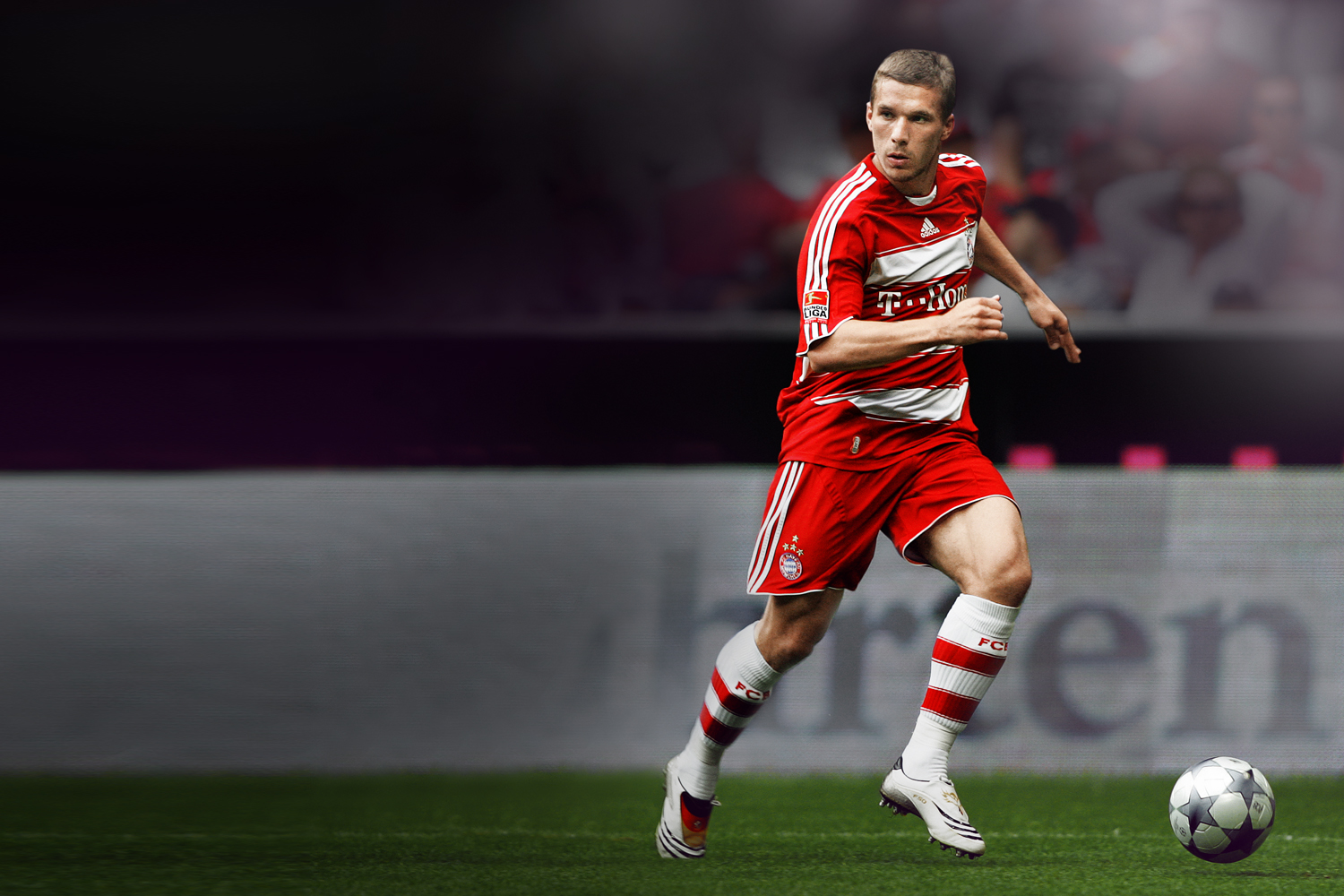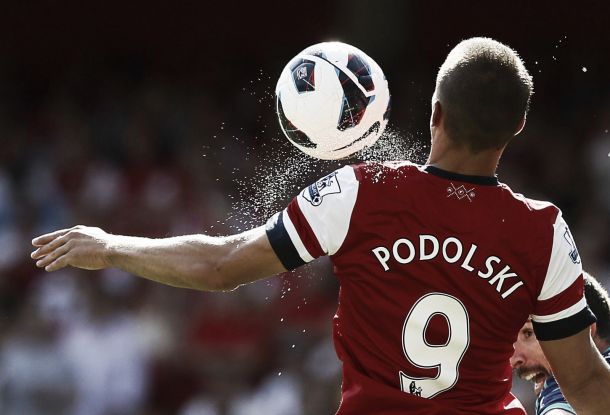When Lukas Podolski joined Arsenal from Cologne for £10.9m in 2012, Gunners fans were awash with optimism at the prospect of signing one of the most prolific forwards in European football. The German boasted a phenomenal international record and, after the departure of Robin van Persie, he was seen as the ideal replacement. Olivier Giroud was seen as the more unproven acquisition as he was brought in alongside Podolski, although the Frenchman has been far more successful in Arsenal colours.
However, three years on, Podolski has departed the Emirates, after agreeing a deal to join Galatasaray for a meagre £1.85m. His spell in North London has been rather mixed; in 82 appearances he scored 31 goals, which is certainly a respectable return given that he was regularly deployed out wide. Nevertheless, his exit was tinged with a sense of disappointment and regret at the fact that he never fulfilled his potential in the Premier League.
Podolski's minimal impact out wide
It’s not overly difficult to establish clear reasons as to why Podolski failed to make a tangible impact at the Emirates; he had the experience, the pedigree, the ability in front of goal. Nevertheless, one key attribute he lacked was work rate and as a consequence he struggled to retain a regular first-team berth.
When he was deployed out wide, Podolski’s movement was limited and he was a perennial figure in many encounters. He also failed to provide sufficient cover for Arsenal’s full-backs as he refused to track back, leaving the Gunners brutally exposed in wide areas on the overlap.
Lack of application
According to EA Sports, in the 2013/14 campaign, Podolski averaged 30.7 sprints per game. Only Mikel Arteta and Per Mertesacker out of the Arsenal squad boasted less than the former Bayern Munich striker, but their respective positions allow for players to be relatively static. Podolski’s perceived ‘laziness’ meant that Arsene Wenger was simply unable to put his trust in him out wide, particularly in the big domestic and European clashes.
However, the 30-year-old also didn’t have the capacity to perform in the lone-striker role. His hold-up play is not up to the required level and he doesn’t run the channels well enough to cause defenders problems. Wenger only deployed Podolski as a lone centre-forward on a few occasions, yet this still served as sufficient evidence that he wasn’t good enough to lead Arsenal’s forward line.
Despite this, it’s not solely at Arsenal that he failed to establish himself as an integral squad member. He also became a peripheral figure with both Germany and Bayern Munich. Podolski’s fundamental flaw is his failure to adapt his game to the modernised 4-2-3-1 or 4-3-3 systems that most top-level teams predominantly employ.

If you were to ask the majority of Arsenal supporters who, out of their squad, prior to Podolski’s departure, they would want to finish off a goal-scoring opportunity, the unanimous verdict would lean towards the 2014 World Cup winner. He boasts a lethal left-foot that has been illustrated throughout his stay in North London, thunderbolts against Montpellier and West Ham demonstrate this.
However, it’s not enough to just be a ‘good finisher’ if you want to enjoy sustained success at a top club. Take Alexis Sanchez, the Chilean’s impact since joining from Barcelona last summer has been tremendous. He scored 25 goals in all competitions, but it was far more than his end-product that endeared him to the Gunners faithful. His unbounding energy, determination and passion was infectious and it had a galvanising effect on his team-mates.
What next for Podolski?
He didn’t always perform to his best, but fans can forgive the odd mistake or indifferent display if application is shown. That’s something that Podolski must learn to develop when he plies his trade in Turkish football.
Podolski became somewhat of a cult figure at Arsenal, due to his active and rather humorous use of social media, however Galatasaray fans may not be as accommodating; they will not only demand goals, but 100% effort and commitment. Lukas Podolski’s talent and quality is undeniable, he wouldn’t have achieved the success and longevity he has without possessing natural ability, but he must have regrets about failing to maximise his potential.
It’s one thing to struggle to adapt to a different style or culture of football. Some players are unable to make the transition, whilst others are simply out of their depth. This doesn’t apply to Podolski. His underwhelming spell at the Emirates was not due to a lack of quality, it was a lack of application. That’s unforgiveable. He cannot afford to squander his latest opportunity.






































